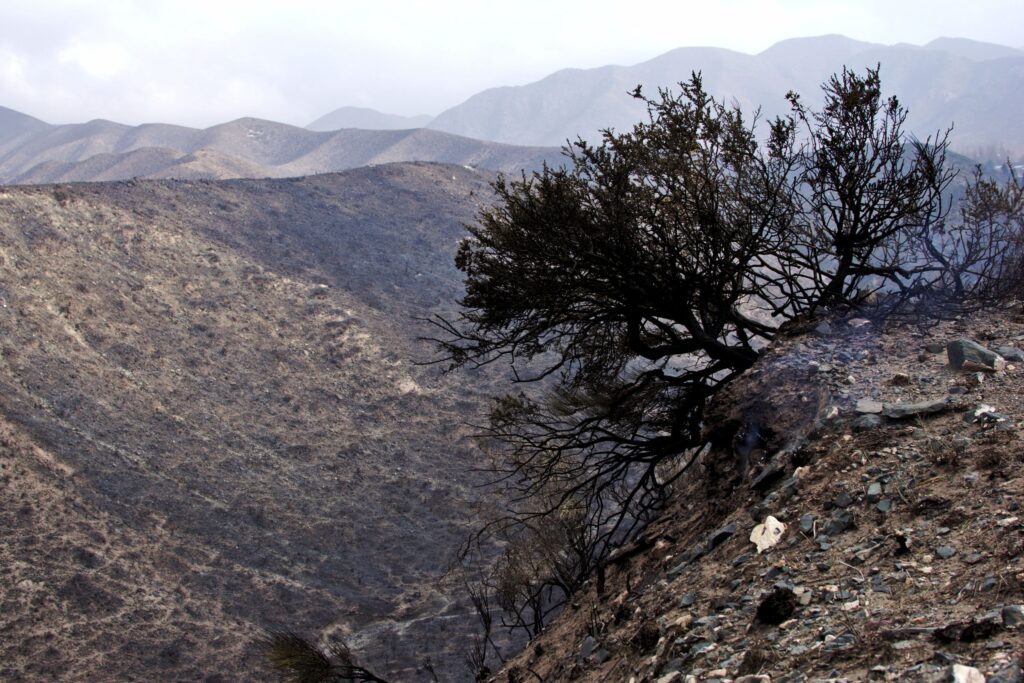
Las Vegas wildfire season typically starts in June and lasts for approximately five months. However, certain conditions can cause the season to start slightly earlier and last slightly longer. 2022 appears to have such conditions, with a worsening drought and record-high temperatures. With the driest climate in 20 years combined with soaring temperatures, some experts have predicted the worst Las Vegas wildfire season in decades.
Sadly, wildfires can result in a number of personal injuries and a variety of property damage. Most car, homeowners, and personal insurance policies cover damages caused by wildfires, but you may not be getting all the money that you’re entitled to. Today, Lerner and Rowe will go over what kinds of injuries and damages Las Vegas wildfires can cause and what you can do to make sure that you’re properly compensated for them.
Personal Injuries Caused by Las Vegas Wildfire Season
Wildfires can start suddenly and spread rapidly, which makes burn injuries the most immediate concern. However, there are a number of other serious ailments that can happen even if you’re not particularly close to a fire. Smoke inhalation, for example, is the leading cause of death due to fires. Additionally, inhaling chemicals and other particulates generated by wildfires can lead to catastrophic injuries to the brain, lungs, and other internal organs.
Wildfires Can Lead to Car Accidents
When wildfires are blazing out of control, it’s common for major roads to be temporarily closed. While this keeps people in the immediate vicinity safe, it can also increase the chances of a car accident in the areas just outside of road closures. Drivers may become confused, distracted, or panicked, which can create chaotic traffic conditions. Unfortunately, such conditions can lead to a variety of traffic accidents.
Property Damage Caused by Las Vegas Wildfire Season
In addition to the danger of your home burning down, property damage can occur while a wildfire is being controlled. After a wildfire is extinguished, land quality is often changed. This can lead to erosion, landslides, debris flow, tainted water, and more. These occurrences can cause significant damage to your home and other personal property.
Staying Up to Date on Wildfire Conditions
The government has a number of excellent resources that can help you keep track of Las Vegas wildfire season activity. The National Weather Service provides current wildfire information, as well as accurate weather forecasts. The Bureau of Land Management shows live video feeds of several Nevada wildfire hotspots. Should a wildfire occur within close proximity to your home, it’s important to know fire prevention tips to prepare your home in order to limit the spread of a wildfire.
Problem With Your Wildfire Injury Claim? Lerner and Rowe Can Help.
If you’ve been injured and suffered significant property damage during Las Vegas wildfire season because of negligence then give Lerner and Rowe Injury Attorneys a call. Insurance companies are infamous for rushing the claims process, offering their customers settlements that are a fraction of what’s deserved. Our team of experienced and skilled attorneys know how to fight hard to make sure that you receive the highest compensation possible for your eligible injuries and losses. In addition to providing impeccable legal representation, our team takes great pride in helping clients carry the emotional burden of an injury so that they can focus on recovery.
The legal professionals at Lerner and Rowe are available 24 hours a day, 7 days a week by phone at (702) 877-1500 and online through LiveChat. You can also submit your inquiry using this convenient and secure contact form. Dealing with the fallout of a Las Vegas wildfire can be a harrowing experience that insurance companies will try to use to their advantage. Let Lerner and Rowe fight for your just compensation today.
The information on this blog is for general information purposes only. Nothing herein should be taken as legal advice for any individual case or situation. This information is not intended to create, and receipt or viewing does not constitute, an attorney-client relationship.



